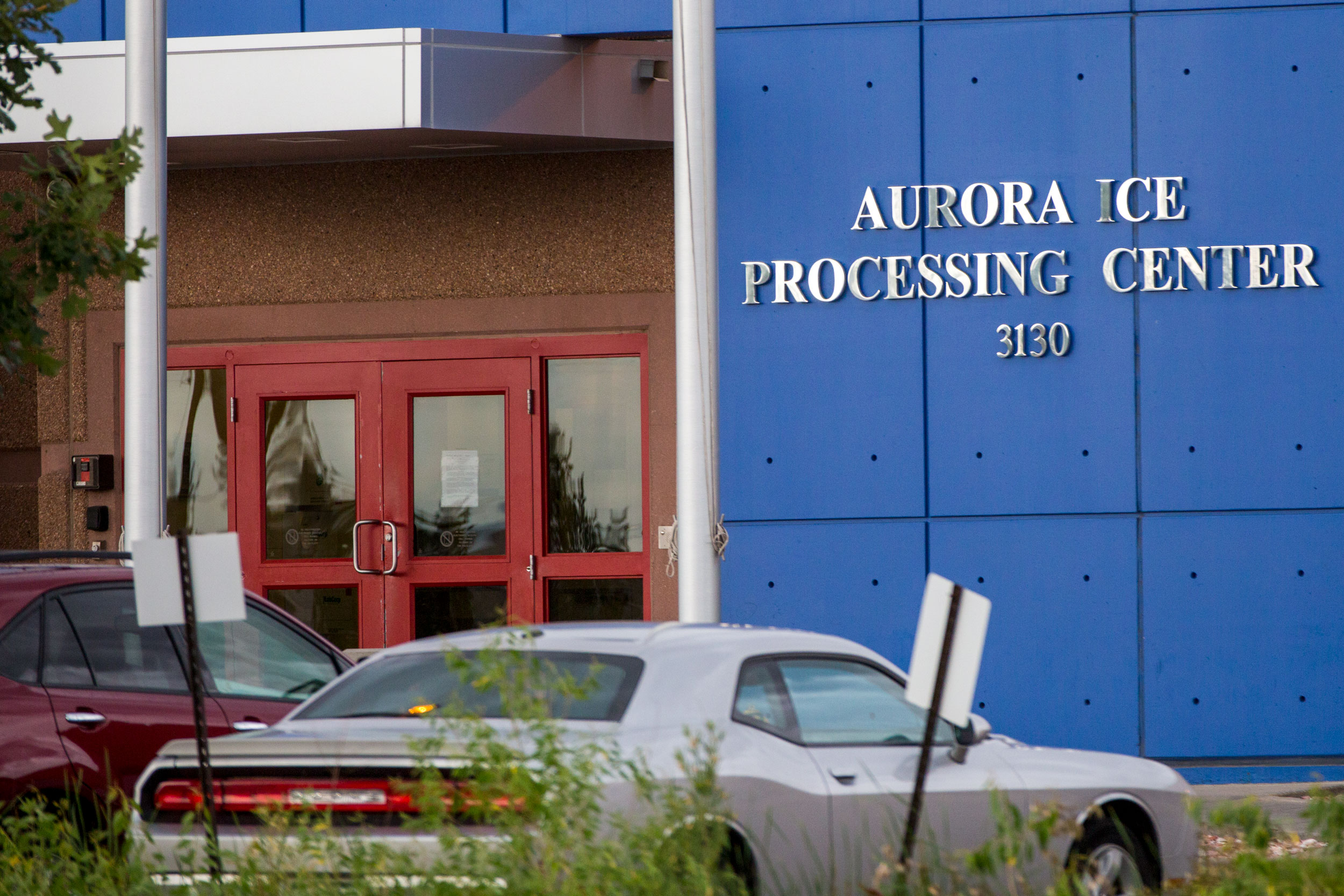A more-than-decade-old case was brought to the U.S. Supreme Court on Monday involving Aurora’s privately run immigration detention center.
The original lawsuit was filed in 2014 by Alejandro Menocal, a former detainee of the ICE detention facility. Menocal, who was held at the detention center for four months, alleges that he and other detainees were forced to perform manual labor for just $1 a day and were threatened with solitary confinement if they refused.
“Every day I would wake up at 5 a.m. to set up to serve meals,” Menocal told CPR News in a 2014 interview. “And then I would hand out brooms, mops, cleaning supplies to the detainees. Detainees cleaned out moldy showers, detainees cut hair, detainees cleaned the cells where we were housed, detainees did the outside maintenance in the yard.”
Menocal filed the original lawsuit alongside eight other former detainees against The GEO Group, Inc., the private prison company that runs the Aurora ICE detention center. GEO is one of the nation’s largest private prison companies and has profited significantly from the Trump administration’s immigration policies.
However, GEO argued that it is immune from the lawsuit because it was acting as a federal contractor. The company’s defense relies on the centuries-old doctrine of “sovereign immunity,” which generally shields the federal government from certain lawsuits. In recent years, some contractors have sought to extend that protection to themselves.
Lawyers for the detainees countered that federal immunity does not extend to acts the federal government did not request or order. Meanwhile, the original suit has been delayed while courts address the question of immunity.
Jennifer Dale Bennett, the attorney representing the detainees, disputed GEO’s claim. “GEO is asking the Supreme Court to grant private contractors the right to tie up lawsuits in endless, meritless appeals,” Bennett said in a statement to CPR News. “We’re hopeful that the Court will reject GEO’s attempt to avoid accountability.”
During oral arguments, several Supreme Court justices appeared skeptical of GEO’s defense. Justice Ketanji Brown Jackson remarked, “You’re just asking for a blanket no liability for contractors who are following the government’s instructions,” addressing an attorney representing the company.
This skepticism was echoed outside the courtroom. Andrew Schwartz, a law professor at the University of Colorado Law School, said GEO faces a difficult legal path. “GEO faces an uphill battle to convince the Supreme Court that their defense to this lawsuit is the sort of thing that must be immediately appealable and cannot wait until final judgment,” he said.
Schwartz also noted that the Supreme Court’s eventual decision could be influenced by Congress, adding that the justices’ ruling is “ultimately subject to congressional approval or disapproval.” He explained that if lawmakers believe federal contractors should be allowed to immediately appeal rulings against them, Congress could pass a new statute to make that possible.
For now, Schwartz said, the Supreme Court case has effectively put the underlying lawsuit on hold. This procedural fight has taken center stage, overshadowing the central claims that detainees were compelled to work for minimal pay under threat of punishment.
https://www.cpr.org/2025/11/12/aurora-ice-detention-facility-lawsuit-scotus/




